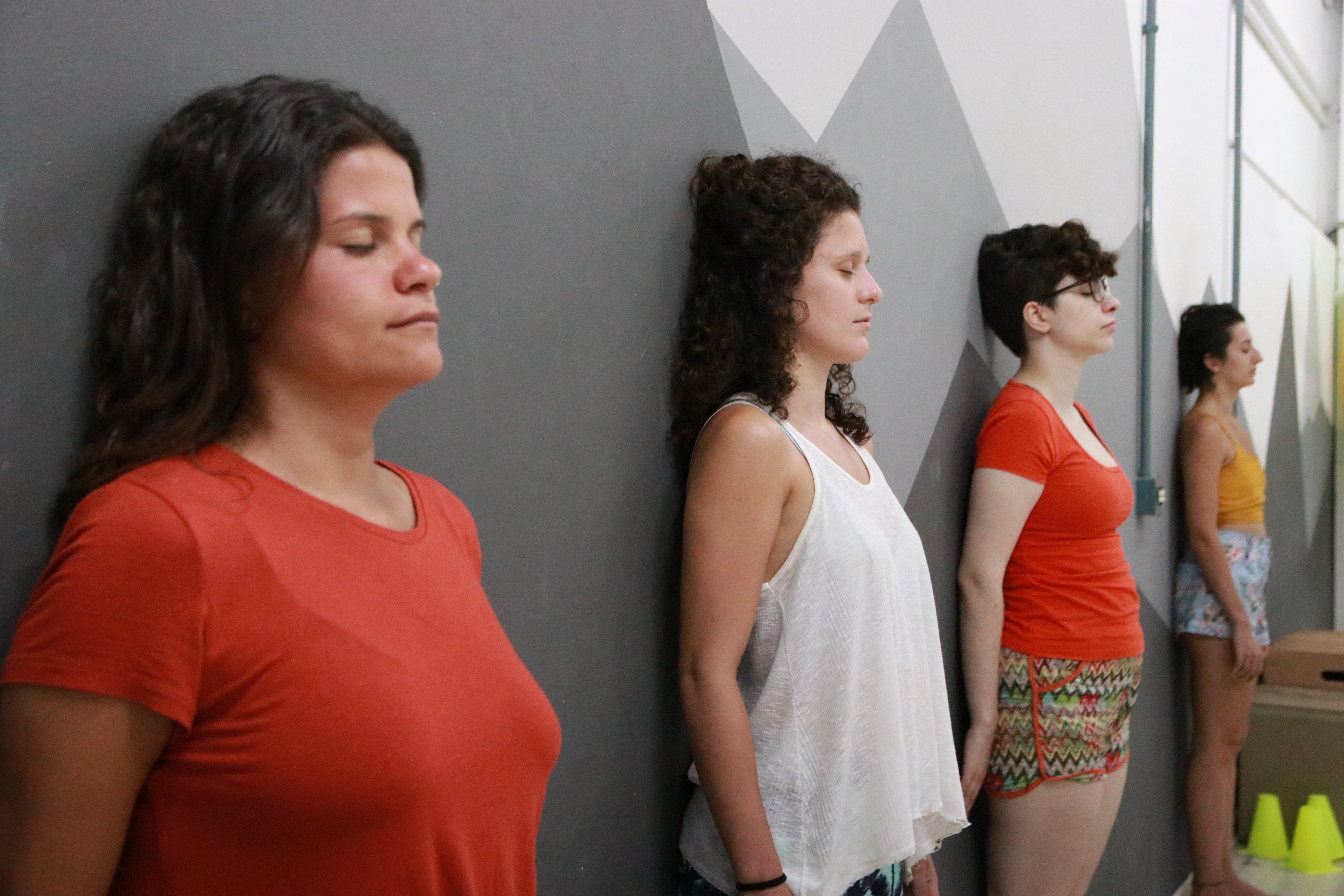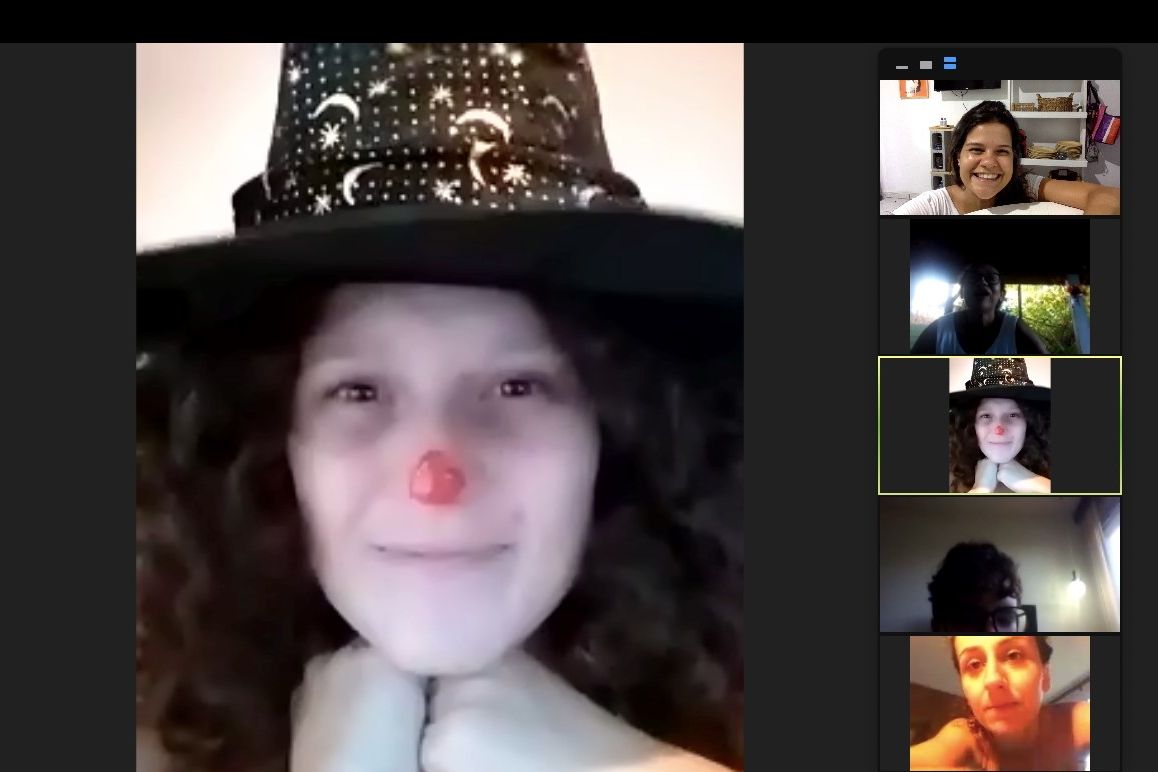Play to Grow

RUMO is a global game for young adults who are keen to develop personally. Five teams from five countries were selected to take part in the project this year. Some tasks have to be solved individually, others have to be discussed in local group meetings and in transnational online reflection sessions. But with official measures to contain the coronavirus making it impossible to hold real-world meetings, the NOW organisation, which initiated the project, set about modifying the game.
We are satisfied with what we’ve managed to make happen.
Rahel Aschwanden from NOW, commented on the status of RUMO. “We launched the programme in mid-March, and within two days the first participants were already in quarantine. The other teams followed one by one. We quickly realised that the exchange would now have to take place not as a hybrid offline and online model, but as an entirely online exchange. This turned into a process of continuous adjustment,” Rahel Aschwanden explains. “Now, though, we are satisfied with what we’ve managed to make happen.”

A game that facilitates the personal development of young adults, letting them swap ideas with each other – how can that work if they can’t actually meet up? The challenge set by the virus was taken up by NOW.
Digital journey of self-discovery
Participants aged between 18 and 25 from Kenya, Palestine, Spain, Brazil and Switzerland have now found out online where their strengths lie. They put what they had learned into practice while exchanging ideas with other players using video calls and online platforms.
Each week, the players had to complete individualised exercises and activities as well as a group task with their local team. During the four-week digital journey, the players were supported in online reflection sessions by ‘learning facilitators’. Local experts, who joined the project at specific times, were also there to offer advice.
I was really positively surprised by the dedication of the facilitators. They really catered to our needs as participants – online too.
The online support from the facilitators worked well. Wendy Trindade, a participant from Brazil, went so far as to say: “I was really positively surprised by the dedication of the facilitators. They really catered to our needs as participants – online too.”
Shift in required skills
RUMO is based on five pillars: “Connection”, “Balance”, “Resilience”, “Growth” and “Purpose”. At the centre of these five pillars are other concepts such as the nurturing of empathy, self-confidence, perseverance and flexibility. The present situation calls for the last one in particular – flexibility.
The current circumstances led many participants to prioritise their core competencies differently. The young adults adapted to the new conditions, as there were now other challenges to overcome than before the coronavirus. “Resilience has become more important now and other things have lost some of their significance. The question also came up: how do I deal with self-isolation? The self-assessments at the beginning and at the end as well as the external assessment by the facilitators are very helpful in answering these and other questions,” says Rahel Aschwanden.
Skills from the Balance pillar have also gained in importance: self-management, perseverance and also learning to set boundaries. These are competencies that we all have to work on more during this time.
Learning to face up to difficult situations
The RUMO game may have been made more difficult, but is still popular despite the pandemic. However, as participant Chiara Lauber also points out: “It was particularly challenging to have to solve the tasks in a virtual setting only. Of course we also missed out on the social interaction with the facilitators, experts and fellow players.”
But NOW has made the best of a difficult situation. With agility and adaptability, they have succeeded in keeping a fabulous project running. The goals of the project have not changed despite the restructuring.
RUMO wants to help young people to acquire life skills that they do not learn through their education. Whether offline or online is not important here. It is about introducing them to methods they can use to set goals, and demonstrating techniques that help them deal better with problems and challenges. They get to know the options for personal development available to each individual. People learn most about themselves when they are faced with difficult situations in life. A worldwide health crisis is certainly one such situation.

The project revealed the exemplary and flexible manner in which the dedicated organisers and young adults of today have dealt with a difficult situation. RUMO ended on 10 April 2020. NOW hopes that the next edition will be able to take place offline again, strengthened by the current situation and with important lessons learned for further projects.